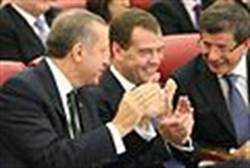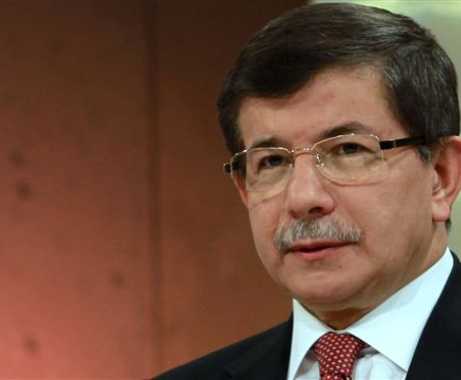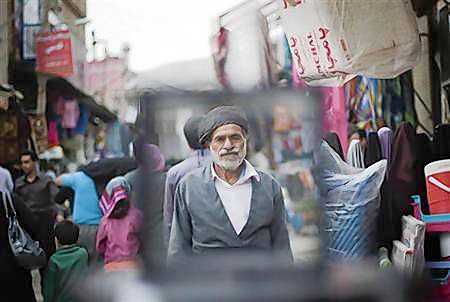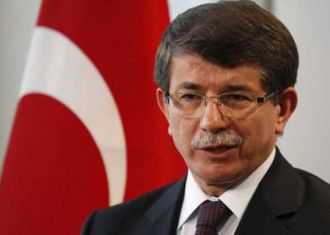Turkey is trying to mediate between Iran and the EU as well as Iran and the Sunnis, to its own advantage.
By Amiel Ungar
First Publish: 1/8/2012, 12:05 AM

(Davutoglu right, Wikipedia)
Turkey’s Foreign Minister Ahmet Davutoglu has just completed a trip to Iran. He is trying to cool down two crises. The first is the escalating talk of war and sanctions between the West and Iran and the second is the eruption of conflict between Sunnis and Shiites triggered by the governmental crisis in Iraq.
If either of these crises escalates, Turkey will have to choose sides. That is something it doesn’t really want, given its burgeoning trade ties with Iran (estimated at $15 billion a year and growing) and the fact that it imports thirty percent of its energy from the Islamic Republic of Iran.
If the European Union goes through with its plan to impose an embargo on oil purchases from Iran, pressure will grow on Turkey to follow suit unless it can obtain a waiver from the United States. Playing the role of intermediary is a way of letting Turkey off the hook while earning the gratitude of the countries in the European Union who would like to avoid more serious sanctions against Iran.
Similarly, an unraveling of the situation in Iraq leading to open hostilities between the Shiites and Sunnis could also produce escalation with Iran, the patron of the Shiites. That would cause the Gulf States to pressure Turkey, a Sunni state, to weaken its connection with Iran. During his visit to Iran, the Turkish Foreign Minister met with Moqtada al-Sadr, the firebrand Shiite cleric who commands the so-called Mahdi Army in Iran.
An article appearing in the Christian Science Monitor argued that Turkey and Iran have effectively partitioned Iraq with Turkey in charge of the Kurdish zone and Iran taking the Shiite East, thereby upending Western diplomacy. A contrary argument could be made that such a partition would be detrimental to Turkey as it would add Kurdish Iraq to the existing Kurdish population in Turkey.
The visit by the Turkish foreign minister comes after Turkey had backed the insurgents in Syria against the regime of Bashar al-Assad, a major ally of Iran. This resulted in the flareup of tensions between Turkey and Iran. Now Davutoglu sought to transmit the reassuring message that Turkey and Iran can contribute to a solution in Iraq and Syria.
“We do not regard any country a threat to us; we confide in Iran and Iran confides in us; the trust is mutual,”
“If relations between Turkey and Iran were at the level they were 10 years ago, a sectarian clash would have already erupted in the region,” Davutoğlu told a group of reporters aboard his plane back to Ankara, according to the pro-government Zaman. Fortunately, he implied, Turkey and Iran were acting responsibly to keep sectarian tensions in check.
via Iran Tensions Would Force Turkey Into Choosing – Middle East – News – Israel National News.





